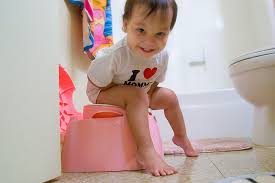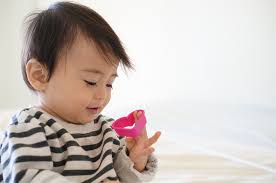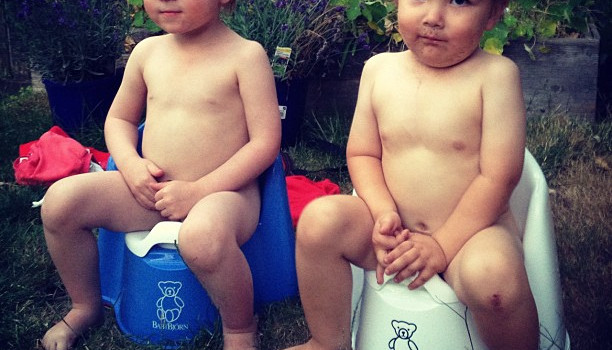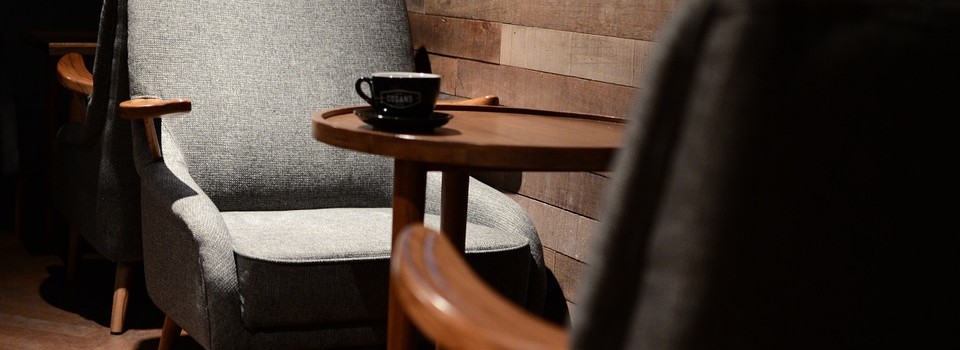The Best Age to Potty Train a ChildThe Best Age to Potty Train a Child
In the past, children stopped wearing diapers at around 18 months. Recent research reveals that a greater number of children over 32 months cannot stay dry throughout the day. It seems toilet training is becoming a more complicated process to children by each passing day. Have you received many suggestions on when should you start potty training? In fact, many kids are not able to master the necessary toilet training skills until they are three years old.
General information
Experts Opinion on the Right Age to Potty Train
It is important for parents to wait until their children show signs that they are ready to be potty trained. Although  some parents start potty training their babies as earlier as four months, (they do this by watching the signs of an imminent poo or wee and catch it in a potty) health practitioners advise against it as it predisposes children to many problems later on. They suggest that children who are potty trained before they show interest experience challenges using school toilets and have difficulties dealing with stressful situations.
some parents start potty training their babies as earlier as four months, (they do this by watching the signs of an imminent poo or wee and catch it in a potty) health practitioners advise against it as it predisposes children to many problems later on. They suggest that children who are potty trained before they show interest experience challenges using school toilets and have difficulties dealing with stressful situations.
Science
Scientifically, the muscles that control the rectum and bladder are not yet mature in a toddler younger than 18 months. This means if a parent is not patient enough to wait until the baby is about two or three years old, the training will result in accidents.
Although there is no official potty training age, a child should be both physically and emotionally ready to start using a potty. Since children are different, this readiness and interest will be exhibited at various ages. It is important to note, too, that boys usually tend show signs of readiness a few months later than girls.
Developmental Milestones as an Indicator
Parents should watch out for developmental milestones like the ability to stay dry for two hours straight, the ability to follow verbal commands, the exhibition of new attitudes like the desire to do things for him or herself and wishing to wear grown-up underwear. If your child displays a regular and predictable bowel movement and seems to imitate other family members in the bathroom, it means that she is ready to start potty training. A dry diaper after two hours nap and the ability to remove clothing, climb and talk are all indicative of your child’s readiness to start potty training.
Early training
 All is said and done; it remains upon the parent to determine when to potty train his or her child. Both earlier and late potty training have advantages and disadvantages. What works for one child might not work for another. The main idea lies in knowing when and how to train your child. Parents should ensure that they use gentle and age-appropriate methods to ensure a smooth transition from the diaper to the potty.…
All is said and done; it remains upon the parent to determine when to potty train his or her child. Both earlier and late potty training have advantages and disadvantages. What works for one child might not work for another. The main idea lies in knowing when and how to train your child. Parents should ensure that they use gentle and age-appropriate methods to ensure a smooth transition from the diaper to the potty.…


 therapeutic benefit of the massage. A massage chair is also helpful in coordination with the massage technique since it reduces the amount of stress and makes our body relaxed and comfortable during the therapy. Now here are some tips on why you should select the best massage chair in the market.
therapeutic benefit of the massage. A massage chair is also helpful in coordination with the massage technique since it reduces the amount of stress and makes our body relaxed and comfortable during the therapy. Now here are some tips on why you should select the best massage chair in the market. This facilitates relaxation and sleeps on the other hand. Also, when the patient can sleep during the therapy, their body is ensured from any discomfort like muscle straining, tension, and cramping. This is something worth paying on the side of the patient. The feeling that when they wake up, they will have a super light feel and can no longer remember how was the massage going.…
This facilitates relaxation and sleeps on the other hand. Also, when the patient can sleep during the therapy, their body is ensured from any discomfort like muscle straining, tension, and cramping. This is something worth paying on the side of the patient. The feeling that when they wake up, they will have a super light feel and can no longer remember how was the massage going.…